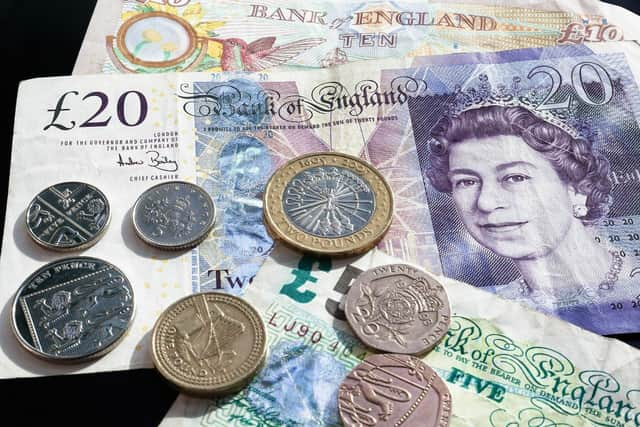Council Tax: 3% rise would help Falkirk bridge £29m budget gap, councillors told
and live on Freeview channel 276
Chief finance officer Bryan Smail told members of Falkirk Council’s executive on Tuesday that in recent years the district has lost out on millions of pounds, thanks to having one of the lowest levels of council tax in mainland Scotland.
The SNP government’s long freeze on council tax proved a major headache for Falkirk as it was imposed at a time when the council was already keeping the tax as low as possible.


Advertisement
Hide AdAdvertisement
Hide AdThat has left it with an income that is £4m lower than the Scottish average every year.
This year, the Scottish Government has left it to councils to set their own rate of council tax, although an extra £120m for local government announced recently came with the clear expectation it would help councils avoid “inflation-busting” rises.
However, with inflation currently sitting at 5 %, that still gives the council some leeway.
Initially, the budget figures had assumed there would be a 3% council tax rise.
Advertisement
Hide AdAdvertisement
Hide AdBut a disappointing budget settlement this year left all councils, including Falkirk, struggling to make ends meet as the grant from the Scottish Government will not cover the cost of recent pay rises for staff as well as general inflation.
In addition, the council has not been given the £2m it needs to fund a rise in National Insurance payments or the estimated £2 million it will need for rising energy costs.
Mr Smail’s clear message to councillors was that there are three options open to them – and it is highly probably that a mixture of all three will be needed when they make their final decision.
The most difficult options will be reducing expenditure – which would almost certainly mean job losses – or increasing income, which would mean raising council tax by more than 3%
Advertisement
Hide AdAdvertisement
Hide AdThe third option, using reserves, would buy them some time but would leave them facing the same headache next year.
Councillors will not make their final decision until a budget-setting meeting on March 2.
